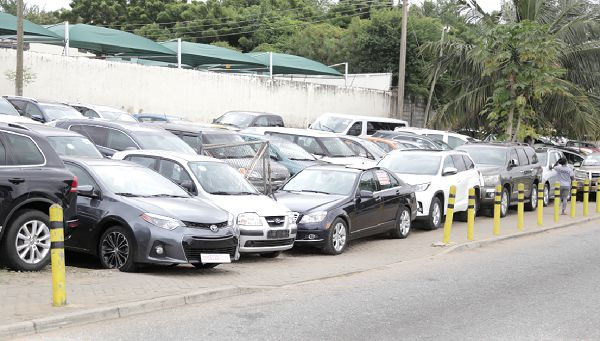Members of the Automobile Dealers Association (ADA) are up in arms against government’s new Automotive Development Policy that seeks to prohibit the importation of salvaged motor vehicles and specified motor vehicles aged over 10 years.
The group said the policy, which has the backing of the recently passed Customs Amendment Bill, 2020, had failed to address the concerns of its members, and that its implementation could have adverse effects on its businesses.
The General Secretary of the association, Clifford Ansu, said members of ADA had planned to hit the streets to demonstrate their displeasure against the policy.
The Automotive Development Policy is also to increase the import duty on specific motor vehicles and provide import duty exemptions for the security agencies and officers of the security agencies when the bill is finally accented to by President Akufo-Addo.
Speaking on Accra-based Citi FM, Mr. Ansu indicated that the policy could also lead to job losses, as importation of some categories of second-hand vehicles had been banned. He pointed out that members of the association had been left with no choice except the protest march.
Last week, Parliament passed into law the Customs (Amendment) Bill, 2020 that is seeking to amend the Customs Act, 2015 (Act 891) to provide incentives for automotive manufacturers and assemblers under the new automotive policy, Ghana Automotive Manufacturing Development Programme (GAMDP).
It is to help in the industrial transformation agenda of government, as some major vehicle manufacturers, including Toyota, Nissan and Volkswagen Nissan, have shown interest in the nation’s new automotive policy intended to boost employment and offer an import substitution for the country.
The Minister of Trade and Industry, Alan John Kwadwo Kyerematen, during the debate on March 3, urged the lawmakers to approve the new automotive policy.
He argued that Ghana was importing over 100,000 vehicles every year, which amounted to an import bill of $1.14 billion, representing 12 per cent of the nation’s import bill (only 10,000 of the figure).
“As a government that is seeking to enhance industrial transformation based on our parallel strategy of export enhancement and import substitution, there could be no better testimony in implementing this policy than to be able to reduce the import of vehicles by producing substitutes locally,” he argued.
By Ernest Kofi Adu

